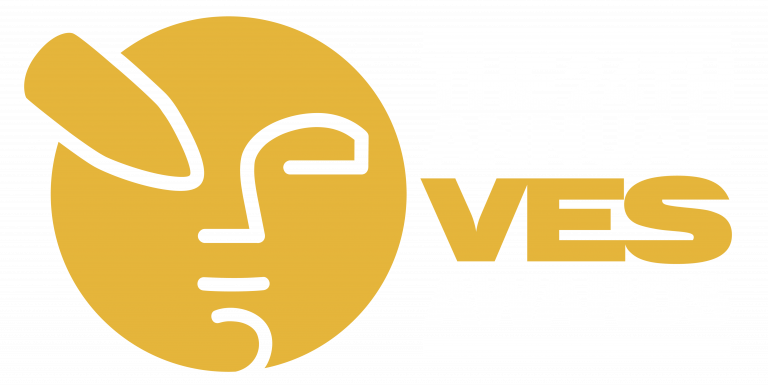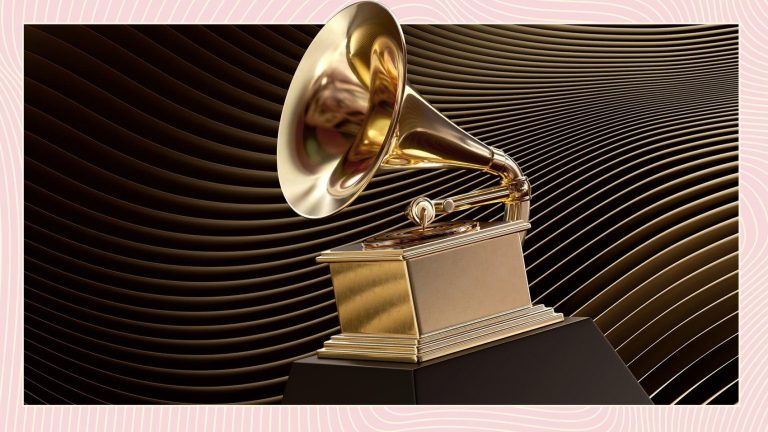
As we step into 2025, the music industry continues to evolve, offering a wealth of opportunities for those looking to build a career with Universal Music Group (UMG). With its diverse range of roles, from creative positions in music production to marketing and tech innovation, UMG stands at the forefront of the music business. This article will explore the various career paths available, the importance of networking, essential skills needed, and how to land those coveted entry-level positions. We’ll also touch on the significance of diversity and inclusion, future trends in the industry, and what it’s like to work at UMG.
Key Takeaways
- Universal Music Group offers a variety of career paths, including creative, marketing, and tech roles.
- Networking is vital in the music industry; building relationships can open doors to new opportunities.
- Essential skills for success include creativity, communication, and adaptability.
- Internships and entry-level positions are great starting points for a career at UMG.
- Diversity and inclusion are prioritized at UMG, contributing to a richer workplace culture.
Diverse Career Paths Within Universal Music Group
Universal Music Group (UMG) isn’t just about singers and bands; it’s a huge operation with tons of different jobs. If you’re thinking about a career in music, it’s worth checking out what they have to offer. It’s way more than just being a performer.
Creative Roles in Music Production
Okay, so you want to be where the magic happens? Think about music production. This isn’t just about recording; it’s about shaping the sound. You could be a sound engineer, mixing tracks and making sure everything sounds perfect. Or maybe you’re more into artist development, helping musicians find their sound and grow. There are also roles for composers and songwriters, creating the music itself. It’s a creative hub where you can really influence the final product.
Marketing and Brand Management Opportunities
So, the music is made, now what? That’s where marketing and brand management come in. These people are in charge of getting the music out there and making sure people hear it. This could mean working on digital marketing campaigns, planning album releases, or managing an artist’s brand. It’s a mix of creativity and strategy, and it’s super important in today’s music world. You might be working on social media, creating content, or even planning events. It’s all about getting the music to the fans. UMG is always looking for people to help with brand opportunities.
Technology and Innovation Careers
Music is going digital, and UMG needs people who get tech. This could mean working on streaming platforms, developing new apps, or even dealing with data analytics to figure out what fans want. It’s a fast-paced area, and it’s always changing. Think about it: someone needs to build and maintain the platforms where we listen to music. They also need people who understand cybersecurity and can protect the music from piracy. It’s a crucial part of the business, and it’s only going to get bigger. The company has been making moves in the tech space, like the Universal Music China Greater Bay Area initiative, showing they’re serious about innovation.
UMG offers a wide range of career paths, from the creative side to the business and tech sides. It’s a big company, so there are lots of opportunities to find something that fits your skills and interests. Don’t just think about being a musician; think about all the other roles that make the music industry work.
The Importance of Networking in the Music Industry
Networking is super important in the music biz. It’s not just about handing out business cards; it’s about building real relationships that can help you grow and find opportunities you wouldn’t find otherwise. Seriously, who you know can be just as important as what you know.
Building Connections with Industry Professionals
Okay, so how do you actually do this networking thing? Start by thinking about who you want to meet. Are you trying to connect with producers, managers, other artists, or maybe people at record labels? Once you know your target, start showing up where they are. Go to local shows, industry events, and workshops. Don’t be afraid to strike up conversations, but remember to be genuine and interested in what they have to say. Nobody likes someone who’s just trying to get something from them. Think about joining a music industry association to expand your reach.
Leveraging Social Media for Career Growth
Social media isn’t just for posting selfies; it’s a powerful tool for networking. Use platforms like LinkedIn, Instagram, and even TikTok to connect with people in the industry. Follow people you admire, engage with their content, and don’t be afraid to send a thoughtful message. Just keep it professional and avoid being spammy. Share your work, your thoughts, and engage in conversations. It’s a great way to build your brand and get noticed.
Participating in Music Conferences and Events
Music conferences and events are like networking goldmines. These events bring together tons of industry professionals in one place. It’s a chance to attend panels, workshops, and showcases, and most importantly, to meet people. Come prepared with your elevator pitch, business cards, and a genuine interest in connecting with others. Don’t just collect cards; follow up with the people you meet afterward. A quick email or message can go a long way in building a lasting relationship.
Networking isn’t about immediate gains; it’s about building a community and fostering long-term relationships. Be patient, be persistent, and be genuine, and you’ll find that the connections you make will open doors you never thought possible.
Skills and Qualifications for Success

Essential Skills for Music Industry Careers
Okay, so you want to work at Universal Music Group? It’s not just about loving music (though that helps!). You need a mix of skills. Adaptability is super important. The music world changes fast, so you have to be able to roll with the punches. Think about it: one minute, everyone’s streaming, the next, vinyl is back. You need to be ready for anything.
Here’s a quick rundown:
- Communication: You’ve got to be able to talk to people, write emails, and present ideas. No hiding in a corner!
- Tech Savvy: Know your way around social media, streaming platforms, and maybe even some music production software. The more you know, the better.
- Business Acumen: Understand how the music industry works, from royalties to marketing budgets. It’s a business, after all.
Educational Backgrounds That Matter
Do you need a fancy degree to get your foot in the door? Not always. But certain educational backgrounds can definitely give you a leg up. Music business programs are great, obviously. But don’t discount other fields. Marketing, communications, even finance can be surprisingly useful. A foundation in science can open doors to unexpected career opportunities.
It’s more about what you do with your education than where you got it. Did you start a music blog? Promote local bands? Intern at a record label? That’s the stuff that really matters.
Continuous Learning and Professional Development
The music industry is not static. What’s hot today might be old news tomorrow. That’s why continuous learning is so important. Take online courses, attend workshops, read industry publications, and stay curious.
Here are some ideas:
- Online Courses: Platforms like Coursera and Skillshare have tons of courses on music production, marketing, and business.
- Industry Events: Attend conferences and seminars to learn from the pros and network with other people.
- Certifications: Consider getting certified in areas like digital marketing or project management to boost your resume.
Internship and Entry-Level Opportunities

So, you’re thinking about getting your foot in the door at Universal Music Group? Awesome! Let’s talk about internships and entry-level gigs. It’s not always easy, but with the right approach, you can definitely make it happen.
Finding Internships at Universal Music Group
Okay, first things first: where do you even find these internships? Well, the UMG careers site is your best friend. Keep checking it regularly. Also, don’t sleep on LinkedIn. Seriously, so many companies post internships there. Network like crazy, too. Talk to people who work there, go to industry events, and let people know you’re looking. You never know who might have an inside scoop. I heard that UMG is offering a 2025 Summer Internship Program focused on Brand and Label Opportunities in creative roles across California, Florida, and New York.
Tips for Landing Your First Job
Alright, you’ve applied for a bunch of internships, now what? Time to make sure your resume and cover letter are top-notch. Tailor them to each specific job. Don’t just send out the same generic thing every time. Show them you’ve done your research and you actually care about this job. And practice your interview skills! Do mock interviews with friends or family. Get comfortable talking about yourself and your experience.
Here are some tips:
- Be prepared to talk about your favorite artists and why.
- Show enthusiasm for the music industry.
- Highlight any relevant experience, even if it’s just volunteer work.
Remember, first impressions matter. Dress professionally, be on time, and be yourself. Let your passion for music shine through.
Success Stories from Recent Graduates
Want some inspiration? Let’s talk about some people who actually made it. There’s Sarah, who started as an intern in the marketing department and is now a full-time marketing manager. Or David, who landed a job in A&R after interning in the same department. These stories show that it’s possible to climb the ladder at UMG if you work hard and make a good impression. They all started somewhere, and usually that somewhere was an internship. It’s all about making connections and showing that you’re willing to learn. Check out networking events to meet people in the industry.
The Role of Diversity and Inclusion
Universal Music Group’s Commitment to Diversity
UMG seems to be talking the talk when it comes to diversity. They’ve got statements and initiatives all over the place. But what does it really mean? Well, it looks like they’re trying to make sure different voices are heard, from the artists they sign to the people they hire. It’s not just about ticking boxes; it’s about reflecting the world in their music and their workforce. I think that’s pretty important, especially in an industry as global as music. It’s about time companies started to reflect the world around them. You can see how employees feel about diversity at UMG in their reviews.
Creating Inclusive Work Environments
Okay, so you’ve got a diverse team. Great! But what if those people don’t feel comfortable or valued? That’s where inclusion comes in. It’s about making sure everyone feels like they belong and has a chance to contribute. This means things like:
- Open communication channels
- Fair promotion practices
- Zero tolerance for discrimination
It’s not always easy, and it takes work, but it’s essential for getting the best out of everyone. I’ve seen companies where the "old guard" makes it impossible for new ideas to get heard, and that’s just bad for business.
Creating an inclusive environment isn’t just a nice thing to do; it’s a smart thing to do. When people feel valued, they’re more engaged, more creative, and more productive. It’s a win-win for everyone.
Benefits of Diverse Teams in Music
So, why bother with all this diversity and inclusion stuff? Well, for starters, it leads to better music. Different backgrounds and perspectives bring fresh ideas to the table. Think about it: if everyone on a team has the same experiences, they’re likely to come up with the same solutions. But a diverse team can challenge assumptions, spot opportunities, and create music that resonates with a wider audience. Plus, it just makes the workplace a more interesting and stimulating place to be. Who wants to work in an echo chamber, anyway?
Future Trends in Music Careers
It’s wild to think about where the music industry is headed. Things are changing so fast, and it’s not just about the music itself, but also about how people work in the industry. Let’s take a look at some of the big shifts we’re likely to see in the coming years.
Impact of Technology on Music Jobs
Technology is already a huge deal, but it’s only going to get bigger. AI is changing how music is made, marketed, and consumed. Think about it: AI tools can now help with everything from writing songs to creating personalized playlists. This means some jobs might change, and new ones will pop up that we can’t even imagine yet. For example, someone who understands AI music creation could be super valuable. It’s all about adapting and learning new skills.
Emerging Roles in the Music Industry
With all this tech stuff happening, there are going to be new kinds of jobs. We’re already seeing more roles in data analysis, helping labels and artists understand their audience better. Also, virtual reality and augmented reality are becoming more popular, so there’s a need for people who can create immersive music experiences. And let’s not forget about the importance of digital marketing strategies – getting music out there in a crowded online world is a skill that’s always in demand.
Here are a few emerging roles to keep an eye on:
- AI Music Curator: Someone who uses AI to discover and promote new talent.
- VR/AR Experience Designer: Creating interactive music experiences for virtual and augmented reality platforms.
- Data Analyst: Helping artists and labels understand audience trends and preferences.
Sustainability and Ethical Practices in Music
People are caring more and more about the environment and social issues, and that includes the music industry. This means there’s a growing need for people who can help make the industry more sustainable and ethical. This could involve anything from reducing the environmental impact of concerts to ensuring fair compensation for artists. It’s about making sure the music industry is doing its part to make the world a better place. We might see more roles focused on ethical music licensing and sustainable touring practices.
The music industry is at a turning point. As technology continues to evolve, and as societal values shift, it’s important for those in the industry to adapt and embrace new ways of working. This includes not only learning new skills but also prioritizing sustainability and ethical practices. The future of music careers will be shaped by those who are willing to embrace change and innovate.
Employee Benefits and Work Culture
Understanding Compensation Packages
Let’s be real, money matters. At Universal Music Group, the compensation packages are designed to be competitive, reflecting the value they place on their employees. It’s not just about the base salary; it’s the whole package. Expect to see things like performance-based bonuses, stock options (depending on the role), and maybe even profit-sharing opportunities. They also usually have regular salary reviews to make sure you’re staying in line with industry standards. It’s always a good idea to ask about the specifics during the interview process so you know exactly what you’re getting into. Understanding compensation packages is key to feeling valued.
Work-Life Balance at Universal Music Group
Okay, so the music industry isn’t exactly known for its chill 9-to-5 vibe. But UMG seems to be making an effort to promote a better work-life balance. It’s still going to be demanding, especially around album releases or big events, but they’re supposedly offering more flexible work arrangements where possible. This could mean remote work options, flexible hours, or compressed workweeks. It really depends on the department and the role, but it’s worth exploring. They also seem to be pushing for employees to actually use their vacation time, which is a good sign.
Here are some things that can help with work-life balance:
- Utilize flexible work options when available.
- Set clear boundaries between work and personal time.
- Take advantage of vacation and PTO.
Employee Testimonials and Experiences
Employee testimonials can give you a real peek into what it’s like to work at UMG. You can usually find these on sites like Glassdoor or LinkedIn. Look for patterns in what people are saying. Are they consistently praising the company culture? Are there recurring complaints about the workload or management? Keep in mind that every experience is different, but these testimonials can give you a general idea. It’s also worth checking out employee testimonials and experiences on YouTube or other video platforms. Sometimes you can find more candid and authentic reviews there.
It’s important to remember that every company has its pros and cons. No place is perfect, and what one person values in a job might be different for someone else. Do your research, ask questions, and try to get a feel for whether UMG’s work culture aligns with your own values and priorities.
Final Thoughts on UMG Careers
As we wrap up our look at Universal Music Group careers in 2025, it’s clear that there are plenty of chances for those looking to break into the music industry. Whether you’re into marketing, artist management, or tech, UMG has something for you. The company is always evolving, and with new projects popping up, there’s a good chance to find a role that fits your skills. Plus, with their focus on mental health and diversity, it seems like a supportive place to work. If you’re passionate about music and want to make a difference, UMG might just be the right fit for you.
Frequently Asked Questions
What types of jobs are available at Universal Music Group?
Universal Music Group offers various jobs in creative areas like music production, marketing, technology, and more.
How can I network in the music industry?
You can network by meeting industry professionals, using social media, and attending music events and conferences.
What skills do I need to work in the music industry?
Important skills include creativity, communication, and knowledge of music trends. Education in music or business can also help.
Are there internships available at Universal Music Group?
Yes, Universal Music Group has internships that provide great experience for students and recent graduates.
Why is diversity important at Universal Music Group?
Diversity helps create better teams, brings different ideas, and makes the workplace more inclusive for everyone.
What is the work culture like at Universal Music Group?
The work culture at Universal Music Group values creativity, collaboration, and offers good benefits to its employees.








